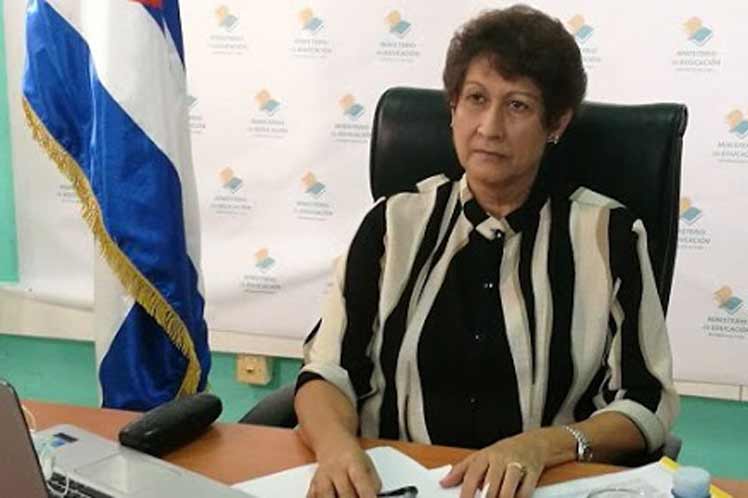The minister spoke at UNESCO’s online world conference on Education for Sustainable Development, which will be held until Wednesday.
Velazquez stressed the importance of educating with a view to a correct perception of the world and the generation of responsible attitudes and behavior in the face of challenges such as environmental protection and sustainable development.
In Cuba, we are committed to an education that forges critical thinking and an anti-hegemonic attitude of confronting cultural colonialism, based on the collectivist spirit, solidarity, cultivating spirituality and sensitivity, without neglecting the material needs of human beings, the minister assured.
According to Velazquez, Cuba promotes this vision despite the impact of the United States economic, commercial and financial blockade against the country for over 60 years, which she denounced as the main obstacle to domestic sustainable development.
At the event, the minister considered that education is the most important instrument to teach the world to read and contribute to making it fairer, more equitable and inclusive.
‘From this conception, a project oriented at personal and collective activity in a sustainable perspective, which respects and enhances the wealth represented by both biological and cultural diversity, is bearing fruit,’ she said.
In that regard, the minister highlighted Cuba’s projection to educate for life, the transformation of the world and ‘for the care of our greatest treasure, which are human beings.’
At the UNESCO forum, Velazquez shared her country’s experience in the education sector, particularly the progress of the third improvement program, focused on principles such as quality and the participation of all those involved in the teaching process.
In her speech, she also mentioned Cuba’s goal of contributing to the training of the generations that Covid-19 times demand, with the promotion of comprehensive policies, focusing on sustainable development, mitigation, adaptation and resilience to climate change, the creation of a digital common heritage and the reduction of the digital gap.
jg/omr/agp/wmr









